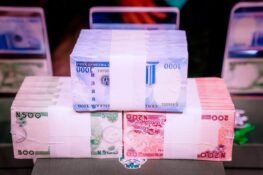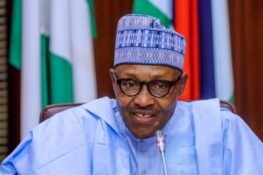Some weeks ago, the Nigerian diaspora had the rug pulled under them.
The acting speaker of the House of Representatives gave a scathing assessment of the rights and aspirations of those living outside the country.
The Deputy Speaker, Idris Was, presiding over the assembly, declined a petition from Nigerian citizens in the Diaspora to be tabled for deliberation by a member of the House from Benue State, Mark Gbillah.
To Idris Was and his kind, once Nigerians become resident abroad, they must not look back and their rights to participate in the political, economic or social life of Nigeria is foreclosed, except they return.
The acting speaker declared that the Nigerian diaspora lost their relevance when they got on the plane, asking in his majestic ignorance, illusion and stupidity: “What is their business? They can’t sit in their comfort zones and know what is happening in Nigeria.”
It hurts for many reasons, but remarkably because not even in their residences abroad are the Diaspora so miniaturised, dehumanised and disregarded, as they have been in their homeland.
Many have provided reasons why Nigerians in the Diaspora should have a voice at home, with most of such defences converging on the quantity of diaspora funding of the Nigerian economy – which I consider a totally irrelevant in logic.
What if the Diaspora has no financial clout? Should it deny them the rights of citizenship conferred by the constitution?
The answer is no; since citizenship rights are not based on economic ability.
Nigerians have always travelled, but were pushed into building a community overseas because the nation failed them in their pursuit of happiness – most of them
The constitutional rights of citizens living abroad and their aspirations should matter and be guaranteed, even if they are the wretched of the earth where they live.
The rights of the diaspora cannot be disconnected from the rights of other citizens, and we will explore more of diaspora treatment in other societies in the second part of this essay.
In this part, it would be proper to trace the odyssey of Nigerians in distant lands and how they came to where they are today. This fulcrum is necessary to understand the conditions and mindset of Nigerians living abroad.
Nigerians have always travelled, but were pushed into building a community overseas because the nation failed them in their pursuit of happiness – most of them.
In the education emigration era of the 1950s and 1960s, a large number of young Nigerians sought education in the best universities in the United States, United Kingdom and other parts of the world.
Aided by Nigeria’s sudden wealth through petroleum in the 1970s, young people took further advantage of government scholarships to travel abroad to study in larger numbers.
Since these were educational travelers, most relocated home after their studies to build Nigeria. Opportunities were many and jobs were freely available.
Upon the completion of their education, many received a relocation package from Federal Government, comprising choice jobs, free accommodation and a moving allowance. Returning to Nigeria was attractive and many came back to contribute to national development.
But things began to change due to economic pressures mounted by austerity measures introduced by the Second Republic administration of Shehu Shagari.
The oil money that fueled much of the economic expansion and sponsorship of Nigerian students for studies abroad was drying up.
The crumbling economy led to a military coup by Major-General Mohammadu Buhari, on the eve of the new year in 1983. The hardships that ensued unleashed a wave of economic emigration.
A lot of the foreign-educated Nigerians and those with connections abroad started to leave in droves.
It was also a time when today’s visa restrictions were nearly non-existent for Nigerians.
Those who were able to anticipate the future simply sought opportunities abroad.
Sensing that those seeking greener pastures abroad were mostly professionals, the Buhari-Idiagbon administration launched a public campaign to discourage emigration by Andrew.
Andrew was the metaphor for Nigerians waiting to leave the country to seek economic opportunities. Andrew became the subject of a bestselling song by Veno Marioghae, titled Nigeria Go Survive.
Andrew did not listen to Veno. Instead of things getting better, it got worse.
Abacha’s brutality and misrule forced many more Nigerians to flee, not just as economic emigrants, but also as refugees and asylum seekers
The Naira was devaluated and a biting Structural Adjustment Program (SAP) was introduced by the General Ibrahim Babangida regime. Emigration became the ambition of the youths.
A glimmer of promise that the economy would get back on track through democratic rule was crushed through the annulment of a free and fair election by Babangida, followed by six years of brutal dictatorship from his military successor, General Sani Abacha.
Abacha’s brutality and misrule forced many more Nigerians to flee, not just as economic emigrants, but also as refugees and asylum seekers.
Other factors, such as the US diversity visa lottery, the Canadian Permanent Residence and Skilled Worker Immigration and other avenues, fueled an outward movement by Nigerians easing themselves out of a difficult economic environment.
The third wave of emigrants started building a recognisable Nigerian diaspora in the cities of Western nations from the mid-1980s.
Large communities of Nigerians began to take shape in cities such as London, Brussels, Amsterdam, Frankfurt, Baltimore, Chicago, Dublin, Houston, Dallas and Paris.
We also began to see Nigerians in countries such as China, Brazil, Australia, India, UAE, Turkey, Ukraine, Sweden, Italy and South Africa.
Today, it is estimated that the population of Nigerians in Diaspora could be as many as 15 million, remitting as much as $30 million to Nigeria annually, thus becoming the most impactful contributor to the economy.
The growing importance of the Diaspora to the national economy can be easily measured through the Diaspora Act, a law which established the Nigerians in Diaspora Commission.
The emergence of a vibrant diaspora community has a consequence for political leaders, for what the diaspora sees abroad, it desires to see at home.
The freedom enjoyed abroad is also fueling a fearless confrontation with the political leadership at home.
It is this boldness to challenge and criticise, in contrast to the climate of applause of leaders in Nigeria, that is creating mindsets in the mold of Idris Was.
I have engaged in discussions in which even close friends allege those living abroad are unsympathetic to, and dissociated from, the conditions in Nigeria.
Some have gone as far as concluding that the Diaspora, being disconnected from reality, no longer wish to see a successful Nigeria. Though absurd, it is understandable.
During the #EndSARS protests, the diaspora urged the youths on, seeing them as change makers among a population of dormant citizens who have accepted crass oppression as the norm.
Donations flowed from many parts of the world to the movement’s account in the hope that it would lead to social and economic change.
The attitude of those abroad inflamed passions, as miscreants took advantage of the protests to loot and raze commercial and public assets.
There was a feeling of “they don’t care what we go through” from those who wanted #EndSARS to climax sooner.
It has been the forces in the Diaspora that have sustained the civil resistance movement of the founder of online media, SaharaReporters, Mr. Omoyele Sowore. #TakebackNigeria has been a disruptive force in the life of the present administration.
In a more recent development, Nigerians abroad quickly raised funds for Sunday Igboho, the lone crusader who wanted to stop the incursions of Fulani bandits in the western region of the country.
The answer is, therefore, not far-fetched when you wonder why a leader of the National Assembly would decline a polite request to discuss the plight of relatives whose security had been put at risk by marauders
In New York, London, Toronto, Japan and other major cities, the Diaspora has taken advantage of a relaxed civil environment to openly engage the Nigerian diplomatic community on issues at home, demanding for change in ways that those at home do not dare to try.
The Diaspora, it seems, is too eager to support pandemonium and challenge established power with the camera running.
The Diaspora became trouble makers in the eyes of the kleptocrats.
The political elite in Nigeria, therefore, hold those abroad, in continuous suspicion.
The comfort zone of the political class is being progressively infringed upon.
The answer is, therefore, not far-fetched when you wonder why a leader of the National Assembly would decline a polite request to discuss the plight of relatives whose security had been put at risk by marauders.
What is it that the Diaspora wants, and what does it deserve?
It is a good time to explore what room, if any, the Diaspora should have in the swing of things.








